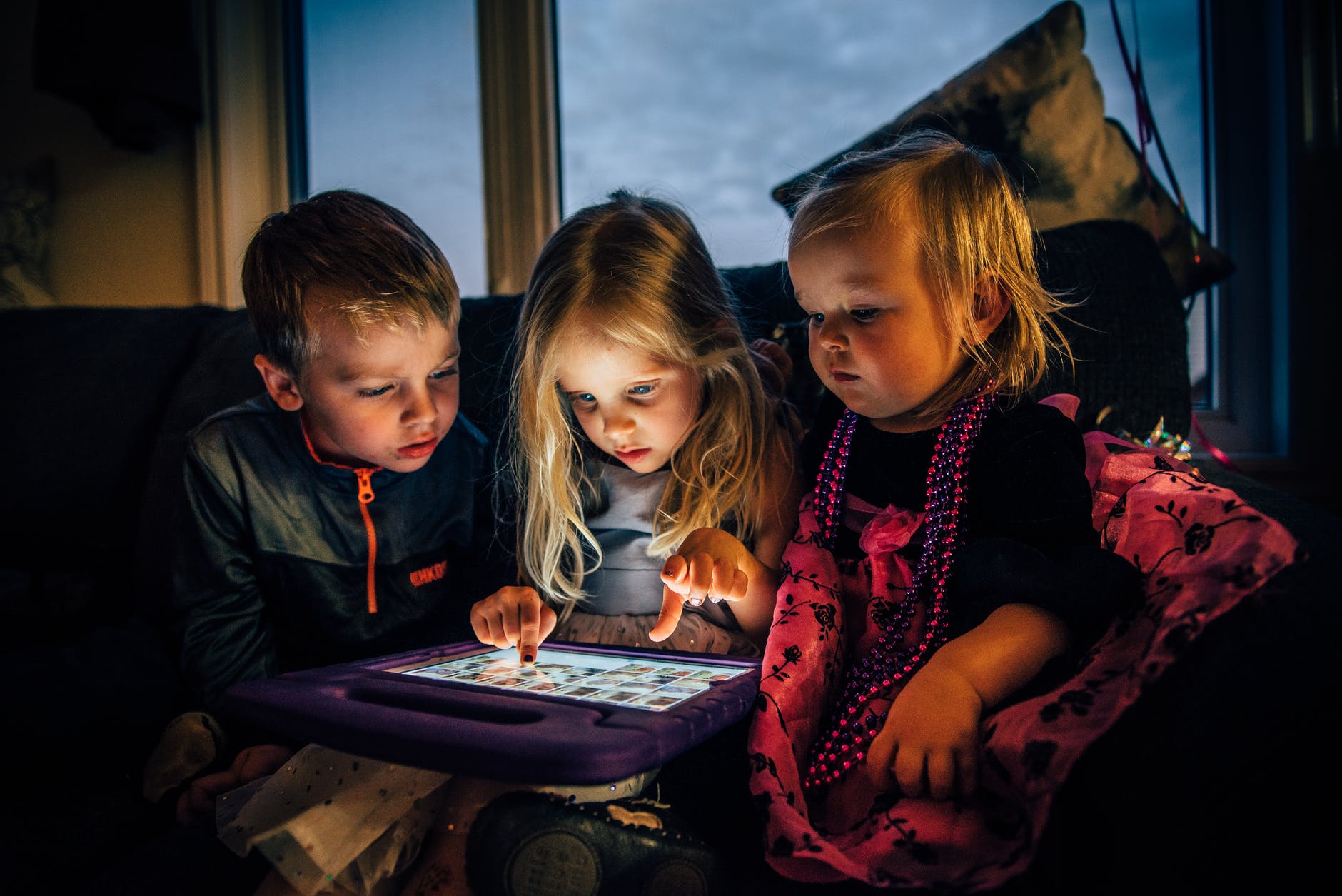This article was produced in collaboration with Taseer Ahmed, a Lecturer on Digital Psychology at De Montfort University and Co-Founder of SEO Agency London – Marketing Voice, and Harmeet Singh, Co-Founder of SEO Agency London – Marketing Voice.
There is much in the way of allowing children to develop the same habits we adults have nestled into, that is, the sedentary habit of sitting in front of a screen. However, deeper evaluation of the pros/cons of children and technology has given us some insight into a more balanced perspective to ensure your child is making the most of the tools surrounding us today to support you in their upbringing. We will present to you two pro’s and two con’s of each argument, leaving you with a perspective that will help guide your screen time at home.
The Age-Old Sociability Argument
More often than not we are used to hearing those of any generation older than X that as technology develops, younger people are becoming less social as they tend to have a digital screen in the form of a phone, tablet or laptop glued to their hands and their backpacks. However, it could be argued that now more than ever, the new format of sociability means occupying a space in the digital realm, which indeed requires screen time and requires an online presence.
As we progress deeper into the 21st Century, it becomes clear that developing familiarity with technology is essential, as all children are introduced to regular computer use in formal education at school.
Not only this, but technology creates enormous opportunity in supporting children with special and access needs, as highlighted here in UNICEF’s Report on Children in the Digital World 2017. Hence, from home and from pre-school, it is crucial to develop this adaptability to digital resources from a young age.
Building Foundations
Kiddisafe, like other Pre-school’s and Nurseries, are committed to solidifying a foundation that will uphold them throughout the rest of their lives. Our staff are dedicated facilitators of an elementary learning experience that will build that very foundation, and will continue with them throughout their lives.
This includes sharing our expertise on the need for the awareness of building digital literacy skills in the home.
Your child’s environment plays a crucial role in their cognitive and intellectual development, and the availability of technology and screens are now a part of this.
Whilst it can be exciting how quickly your child learns to navigate YouTube and how to find their games on your mobile phone, there are some concerns to keep in mind to ensure that their use of such technology is balanced to keep the intensely negative consequences at bay.
Cons of Screen Time
1. Learning is multi-faceted
Whilst there is importance placed on your child using digital technology to develop digital skills, and there is now an ever-growing marketplace for online learning, it is vital to remember that the greatest learning and development is made through varied and diverse experiences. Different exercises and tasks that work on building emotional connections, lasting memories and cognitive abilities are crucial in building character and a wide array of skills that will best support them in all areas of learning beyond their pre-school years.
Limiting screen time to one-hour a day to develop those digital skills (such as typing and learning with engaging programmes) allows you to dedicate time to those crucial experiences.
2. Physical Strains
A well-known reason (often because we adults experience this ourselves) is the physical strain and stress left on the body as a result of too much screen time.
Especially for children under 5, the strain left on their eyesight and posture can leave damaging consequences that will continue to affect and worsen throughout life. As the linked article highlights, there is a strong correlation between increased screen use in young children and their development of short sightedness.
Because young children are so quick to learn and pick up habits, it is important we encourage healthy digital habits, too.
Pro’s of Screen Time
1. Interactive Skills
The role of digital communication and media in expanding our average vocabulary is significant. Having your child exposed to educative content producers who are well-spoken and focused on child development can lead to improved communication and language skills, like the BBC’s Alphablocks or Mo Willem’s Lunch Doodles.
2. Preparing for School and the Future of Work
Today, we are well aware that some of the best careers are tech-focused. In 20 years time, we are expecting the role of technology to have significantly influenced the job market in almost allindustries.
To ensure your child is prepared and familiar with this potential outcome, it is important they become familiar with its use and its ability to communicate with others.
Conclusion
And so, it is clear there is a fine balance and responsibility needed to ensure that the benefits of technology can be reaped, whilst being able to limit the negative consequences that can affect their longterm health.
The most important factor when determining what is too-much or too-little, is to ensure that your child is at least receiving a wide and varied learning experience, encompassing tools from the great outdoors, their toys, natural materials, household items as well as digital tools.
To learn more about how we can support your child’s learning together, get in touch with us today.
Please share in the comments your experiences on managing screen time in the home. If you have any tips to share, or are seeking advice, please share!
What else would you like to see here? Please share below!
This article was produced in collaboration with Taseer Ahmed, a Lecturer on Digital Psychology at De Montfort University and Co-Founder of SEO Agency London – Marketing Voice, and Harmeet Singh, Co-Founder of SEO Agency London – Marketing Voice.

